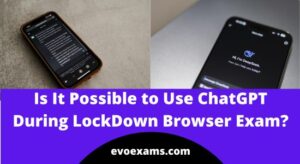How to Cheat on the TEAS Test Online in 2025
How to Cheat on the TEAS Test Online in 2025
With the TEAS (Test of Essential Academic Skills) test being a critical step for nursing school applicants, some students may be tempted to seek shortcuts. In 2025, advancements in technology and online proctoring have made cheating more complex, but not impossible. This blog post, explores the latest methods students use to cheat on the TEAS test online.
Understanding the TEAS Test in 2025
The TEAS test, administered by ATI, evaluates a candidate’s readiness for nursing programs through four sections: Reading, Math, Science, and English and Language Usage. In 2025, the test remains a mix of 150 scored and 20 unscored questions, totaling 170, with a time limit of 209 minutes. Many institutions now offer the TEAS test online, proctored remotely via platforms like Proctorio, which uses AI-driven monitoring, webcam recording, and screen-sharing detection to ensure exam security. Despite these measures, some students explore ways to bypass the system, driven by pressure to achieve high scores.
Common Methods Students Might Use to Cheat on the TEAS Test Online
1. Screen Sharing and Remote Access Tools
One of the most prevalent cheating methods involves screen-sharing software like AnyDesk or TeamViewer. Students may connect their computer to a secondary device or share their screen with a friend or hired expert who provides real-time answers. This method exploits the fact that proctoring software may not always detect external connections if set up discreetly.
How it works: A student mirrors their screen to another device, often hidden from the webcam’s view. The accomplice, located elsewhere, sees the exam questions and relays answers via a concealed earpiece or text.
Why it’s risky: Proctorio’s AI flags unusual network activity or eye movements, and human proctors may review recordings for suspicious behavior. If caught, students face severe consequences, including score invalidation or bans from nursing programs.
2. Smart Devices and Wearables
Smartphones, smartwatches, and programmable calculators are popular tools for cheating. Students may store formulas, notes, or even communicate with others during the exam. For instance, a smartwatch can display preloaded answers, while a smartphone hidden off-camera can receive messages.
How it works: A student might place a phone under their desk to access a TEAS cheat sheet or text an accomplice. Advanced calculators can store scientific formulas for the Math or Science sections.
Why it’s risky: Proctoring software records audio and video, detecting unusual sounds or movements. Using unauthorized devices violates ATI’s policies, risking academic penalties or legal action. A 2023 case highlighted a student flagged for using a Bluetooth device, leading to score cancellation.
3. Hiring Professional Test-Takers
Some students turn to services claiming to “guarantee” high TEAS scores by hiring experts to take the test on their behalf. Websites like those mentioned in online forums (not endorsed here) offer such services, exploiting remote testing’s vulnerabilities.
How it works: A student provides login credentials to a proxy who takes the exam from a different location. The proxy may use virtual machines to mask their identity or bypass IP tracking.
Why it’s risky: Proctorio’s identity verification, including facial recognition and ID checks, makes impersonation difficult. If detected, both the student and proxy could face fraud charges. A 2024 incident reported a student paying $8,000 to avoid reporting after being caught.
4. Collaborative Cheating and Question Sharing
Students may collaborate with peers who have already taken the TEAS, sharing questions or answers via social media or messaging apps. This “charity” cheating, as described in academic literature, involves memorizing questions or taking screenshots to distribute later.
How it works: A student captures questions during the exam (e.g., via a hidden camera) and shares them with others. Groups on platforms like Reddit or Discord may compile question banks.
Why it’s risky: Proctorio’s lockdown browser prevents screenshots, and AI flags rapid eye movements or off-screen glances. Sharing questions violates ATI’s confidentiality agreement, potentially leading to legal repercussions.
5. Physical Cheat Sheets and Hidden Notes
Despite high-tech solutions, some students rely on old-school methods like writing answers on their palms, water bottles, or tissue boxes. These low-tech approaches aim to evade AI detection.
How it works: A student might label a water bottle with key formulas or hide notes in a tissue box, glancing at them during the exam.
Why it’s risky: Human proctors reviewing footage can spot suspicious glances or objects. Even subtle movements can trigger AI flags, leading to score reviews.
How Educators Can Strengthen TEAS Test Security
To combat cheating, educators and institutions can adopt proactive measures:
- Leverage Advanced Proctoring: Use platforms like Proctorio with AI-driven monitoring, dual cameras, and lockdown browsers. Ensure human proctors review flagged footage for high-stakes exams.
- Randomize Questions: Implement question banks to reduce the effectiveness of shared answers. Vary question order and content for each test-taker.
- Educate Students: Promote academic integrity through workshops or pre-exam briefings. Highlight the consequences of cheating, both academically and professionally.
- Verify Identities: Use facial recognition, ID checks, and two-factor authentication to prevent impersonation. Regularly update verification methods to stay ahead of tech advancements.
You may also like // How to Cheat on the GED Test in 2025
Conclusion
At EvoExams.com, we’re passionate about helping students and professionals achieve their goals. If you’re preparing for a TEAS (Test of Essential Academic Skills) test in 2025, our team is here to deliver high-quality academic writing services to fuel your success.



